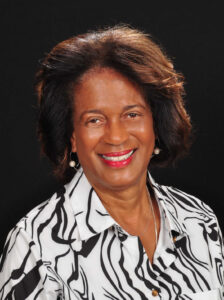By Nance Ebert, Contributing Writer

Photo/Submitted
FRAMINGHAM – Glenda Thomas knows first-hand the importance of a support group when faced with a medical challenge. She was diagnosed in 2013 with Myasthenia Gravis (MG). It is a rare autoimmune disease that results in abnormal weakness in certain muscles, and according to the dictionary, it is “marked by muscular weakness without atrophy and caused by a defect in the action of acetylcholine at neuromuscular junctions.”
Her particular case is quite rare, and she feels blessed that a doctor who she has dubbed her “guardian angel” was quick to intervene. After a clinical assessment, the doctor got her started on a treatment protocol that has proven successful for her. And now she’s giving back as a volunteer and advocate.
From affliction to advocacy
Thomas is a member of the Massachusetts Rare Disease Advisory Council, a position that is appointed by the governor. The Rare Disease Advisory Council advises the governor, the legislature, and the Department of Public Health on the incidence of rare disease within the Commonwealth and the status of the rare disease community. She is also the Myasthenia Gravis Foundation support group leader for New England.
Thomas has lived in Framingham since 1980 and worked in corporate America for over 35 years, leaving to help care for ailing parents. Her father passed away and while caring for her mother, she was diagnosed with Myasthenia Gravis. Even with this diagnosis, Thomas felt she needed something to occupy her time and make her feel productive, so she volunteered with Bay Path Elder Services (now Springwell) as a bill payer. Recognizing finance as one of her strengths, she began a new business venture twelve years ago as a daily money manager. In this role, she helps senior clients and disabled individuals with their day-to-day finances.
Diagnosis took time
“My symptoms began years before I was diagnosed,” she explained. “When you have a rare disease, it is challenging to put the pieces together. I had droopy eyelids that required surgery and I also had a droopy neck and was sent for physical therapy.”
“It obviously did not help and, in my case, even with bloodwork ordered by my PCP, my results came back negative,” Thomas noted. “It wasn’t until further testing that confirmed a diagnosis. I am considered ‘rare within the rare.’ I have Muscle-specific tyrosine kinase (MuSK) MG.”
“Initially my PCP didn’t pick up on my droopy eyelids nor did my ophthalmologist. It was my mother’s doctor that insisted there was a neurological reason for this to be happening. Because he was not my doctor, I did not listen to him at the time. After the eyelid surgery, I had dry eyes and light sensitivity due to the Myasthenia Gravis and ended up with trauma as a result,” said Thomas.
A chronic condition
Most individuals who are diagnosed with this disease can have a normal life expectancy except for a complication known as myasthenia crisis, which can be life threatening as it directly affects breathing. In this instance, immediate treatment is necessary for a struggling individual to breathe on their own.
Some of the symptoms of this disease include double vision, difficulty swallowing, droopy eyelids or mouth, unsteady walking and more. There are treatments that can help but, at this point in time, there is no cure. Imaging and lab tests are always required, and it is a chronic condition that can last for years or a lifetime.
Once diagnosed, Thomas quickly joined a support group and was very active from the beginning and became the support group leader for New England. She struggled to wash her hair, stand up straight, drive, take a dish out of the cabinet and even eating became extremely tiring, resulting in an extreme weight loss.
After her treatment began, she immediately saw results and felt much better. She started with an infusion.
Commitment to helping others
It is Thomas’s mission to help people with MG navigate for themselves and be strong. She encourages people affected with this disease to share what is working and what still needs to be addressed. Hospitals are listening as many who suffer from this disease bring a lot of value to their patient care.
“ I have found a whole MG family,” said Thomas. “I have colleagues as far away as the West Coast and even in Europe. You are not by yourself. That is truly what I advocate for, along with a cure.”
For more information:
Mass Rare Disease Advisory Council survey:
https://www.mass.gov/info-details/massachusetts-rare-disease-advisory-council-rdac-survey
New England MG community support:
https://myasthenia.org/MG-Community/Find-MG-Support-Groups/PID/712/SearchID/711/cfs/True/ddlcid_8/24
RELATED CONTENT:
Framingham Heart Study celebrates 75th anniversary (fiftyplusadvocate.com)
FDA Approves Leqembi, a promising drug used to treat Alzheimer’s (fiftyplusadvocate.com)
Eight lesser-known triggers of high blood pressure (fiftyplusadvocate.com)












